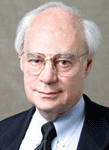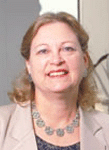University of Houston engineering professor John Lienhard and petroleum engineering director Christine Ehlig-Economides have been elected to the National Academy of Engineering, one of the most highly regarded professional engineering organizations in the world.
Lienhard, M.D. Anderson Professor of Technology and Culture, Emeritus in the Cullen College of Engineering, was elected as a member "for creating the awareness of engineering in the development of cultures and civilizations, and for the development of basic burnout theories in boiling and condensation," according to NAE President William A. Wulf, who announced a list of 77 new members on Feb. 14.
Ehlig-Economides, who also serves as a global account manager and consultant for Schlumberger Oilfield Services, was elected as a member "for contributions to the testing of wells and the characterization of reservoirs, including the management, integration, and visualization of data from multiple disciplines."
Other NAE members from the University of Houston include Neal R. Amundson, elected 1970; Abraham E. Dukler, 1977; Dan Luss, 1984; James M. Symons, 1994; Benton F. Baugh, 1999; Charles D. Cutler, 2000; Fazle Hussain, 2001; and Bonnie Dunbar, 2002.
Academy membership honors those who have made "important contributions to engineering theory and practice, including significant contributions to the literature of engineering theory and practice," and those who have demonstrated accomplishment in "the pioneering of new fields of engineering, making major advancements in traditional fields of engineering, or developing/implementing innovative approaches to engineering education."
John Lienhard
Lienhard is an internationally known public radio personality who is recognized by his academic and professional peers for his contributions to the public's understanding of engineering and technology and for advancing mechanical engineering education.
Written and hosted by John Lienhard and KUHF-FM, Houston, "The Engines of Our Ingenuity" tells the story of how culture is formed by human creativity. The program uses the record of history to reveal the way art, technology, and ideas have shaped us. Episode topics range from cable cars to Civil War submarines, from the connection between Romantic poets and Victorian science to the invention of the bar code.
The series is broadcast five days a week by over thirty National Public Radio affiliates nation-wide. It was first aired on NPR member station KUHF-FM Houston on Jan. 4, 1988. It was made available nationally, three months later. As of Feb. 12, at total of 1,775 new episodes had been aired and posted on the Engines Web site at engines.egr.uh.edu.
"It certainly feels good to join in the process of bringing credit to the university, which has been a good place for me," Lienhard says. "It feels great to know that I'm a member of a department that has sufficient stature to draw this award to it."
Lienhard's work on "Engines" has resulted in numerous awards and recognitions. Among them are the Ralph Coates Roe Medal from the American Society of Mechanical Engineers for contributions to the public understanding of technology; the Portrait Division Award from the American Women in Radio and Television; the Engineer-Historian Award from the American Society of Mechanical Engineers; the McGovern Award from the American Medical Writers of America; the ASME Engineer Historian Award; and the Edward F. Church Award for distinguished service in advancing mechanical engineering education.
Well known for his artful powers of expression, Lienhard thought carefully before describing what it was like to receive the news of his election to the NAE.
"Two things happened on Thursday," he says. "I was sitting here, trying to get the next episode done, feeling like my juice is run down. So I walked over to the Blaffer Gallery just to look at the latest exhibit (Mads Gamdrup's "Renunciation"), and what I encountered was a series of photographs of desolate landscapes, beauty out of desolation. It was wonderful."
When Lienhard returned to his office, two packages were waiting for him.
"One was from the National Academy telling me I'd won it, and I hadn't expected to hear anything on that for another week. The other package was the copy-edited manuscript of my next book. So here was this sort of synchronicity. The one thing was the award and the other thing sort of said, 'You're back in the water now. You're doing something urgent that has to be done quickly and has to be done well.'"
Lienhard's book, which will be published this spring by Oxford Press, is titled "Inventing Modern: An Engineer Looks for Twentieth Century America." The book promises to be a conceptual tour de force for Lienhard, who explores the "mystery of transmutation" that accompanied a culture born of new technology and unsettling new ideas.
Christine Ehlig-Economides
Ehlig-Economides enters the NAE primarily for her impact on well testing, reservoir integration and the definitive conceptual models she has created for both. Her work has taken well testing in directions that were both unusual and insightful, and the key to her success has been her ability to recognize the relevance of a multitude of disciplines and apply her knowledge to the understanding of fluid flow in the context of the petroleum industry.
"In the industry now, we collect more and more data, but the data is not what is really most important. It's what it's telling you that matters," says Ehlig-Economides. "In order to make these models more useful, you have to be able to simplify, conceptualize and generalize a situation so that you can learn significant things from the data. A well test could be collecting 20,000 records of data, and what we extract from that is maybe half a dozen numbers that are important."
The same skills are necessary when dealing with reservoir integration and simulation, where data records can number in the tens of millions, Ehlig-Economides says.
At UH, Ehlig-Economides works to elevate the visibility of the college's master's program in petroleum engineering. Under her direction, the Houston enrollment has increased exponentially to more than 100 students and continues to increase. Ehlig-Economides advises master's degree candidates for the thesis option. She has also established the Petroleum Engineering Advisory Board for the UH program.
Another recent milestone at UH has been her leadership in bringing the master's program to students in Mexico. Working in cooperation with Universidad La Salle, UH graduated 16 Mexican engineers in November 2002. The international courses are offered using a special format that Ehlig-Economides designed and shepherded through the statewide approval process.
The college now hopes to use this same format to offer the program in the Middle East and the Far East, and other programs at the university are adopting this format for international program offerings. The Mexican degree also led to a general upgrade in the quality of the program courses as they are taught in Houston, and Ehlig-Economides is introducing an initiative to capture the lectures as streaming video.
More recently, Ehlig-Economides is focusing on applying modern well construction technology to accelerating the recovery of oil and gas, targeting an aggressive 50 percent recovery in less than 5 years.
A few reservoirs have a "natural water drive," an aquifer that provides pressure to the reservoir, but most do not. In most instances, getting beyond 20 percent recovery is an extremely complicated and expensive undertaking. Ehlig-Economides has developed strategies that improve the efficiency of that task while simultaneously maintaining the integrity of the environment.
"What we've been working on here is a new approach that begins with water flooding and horizontal drilling, and makes use of our knowledge of the geometry of the reservoir and the equipment to speed the performance of the recovery process," says Ehlig Economides, who has been working with masters students to more fully develop these concepts. "What we have shown is if you begin by paying strict attention to downhole oil-water separation and its relationship to water flooding strategy, you can significantly enhance performance and accelerate recovery."
Ehlig-Economides is looking forward to joining the NAE and participating in expanding its role as a voice of leadership within the petroleum industry.
"The National Academy is certainly a very elite group to be part of, and I do look forward to being active with them," Ehlig-Economides says.
Both members will be formally inducted into the academy on Oct. 11 in Washington D.C.

